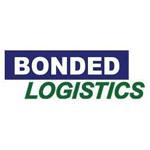Key Performance Indicators (KPIs) for Ecommerce Fulfillment
Uncover the essential metrics that drive success in ecommerce fulfillment with this comprehensive guide to Key Performance Indicators (KPIs).
In the fast-paced world of ecommerce, it is crucial for businesses to measure their performance accurately. This is where Key Performance Indicators (KPIs) come into play. By analyzing specific metrics, companies can gain insights into their performance and make data-driven decisions. In the realm of ecommerce fulfillment, tracking the right KPIs is essential for ensuring efficiency and customer satisfaction.
Understanding Key Performance Indicators (KPIs)
KPIs are measurable values that indicate how well an organization is achieving its strategic objectives. In the context of ecommerce fulfillment, KPIs provide insights into the efficiency of order processing, inventory management, and delivery. By tracking KPIs, businesses can identify areas for improvement and make informed decisions.
Furthermore, KPIs can vary across different industries and business models. For example, while a fast-moving consumer goods company may focus on metrics like order cycle time and on-time delivery, a luxury brand might prioritize customer satisfaction and brand loyalty as key indicators of success. Understanding the specific KPIs that are most relevant to your business is essential for driving growth and profitability.
The Role of KPIs in Ecommerce Fulfillment
KPIs play a crucial role in evaluating the overall performance of ecommerce fulfillment operations. They serve as benchmarks for success and enable businesses to measure their progress towards meeting customer expectations. Whether it’s tracking order accuracy, fulfillment speed, or inventory turnover, KPIs provide valuable insights into the efficiency and effectiveness of the fulfillment process.
Moreover, KPIs can also help businesses set realistic goals and targets for improvement. By establishing clear KPIs and regularly monitoring them, companies can create a culture of accountability and continuous improvement within their fulfillment operations. This proactive approach not only drives operational efficiency but also fosters a customer-centric mindset throughout the organization.
The Importance of Accurate KPI Tracking
Accurate tracking of KPIs is vital for businesses to understand their performance accurately. Without accurate data, companies may make flawed assumptions or overlook critical areas for improvement. By implementing robust monitoring systems and data collection processes, businesses can ensure that their KPIs reflect the true state of their ecommerce fulfillment operations.
Additionally, accurate KPI tracking enables businesses to conduct meaningful performance comparisons over time. By analyzing historical KPI data, companies can identify trends, patterns, and areas of improvement that may have gone unnoticed otherwise. This historical perspective is invaluable for strategic decision-making and long-term planning in the ever-evolving landscape of ecommerce fulfillment.
Read more: 23 Key Warehouse KPIs to Elevate Your Operational Efficiency

Essential KPIs for Ecommerce Fulfillment
When it comes to ecommerce fulfillment, several KPIs are crucial in evaluating performance. These KPIs provide insights into different aspects of the fulfillment process, enabling businesses to identify areas for improvement and optimization.
Tracking Key Performance Indicators (KPIs) is vital for any ecommerce business looking to thrive in a competitive market. By monitoring these metrics closely, companies can make data-driven decisions that lead to enhanced customer satisfaction, streamlined operations, and increased profitability.
Order Accuracy Rate
The order accuracy rate measures the percentage of orders that are fulfilled without errors. This KPI is essential for ensuring customer satisfaction. By tracking the order accuracy rate, businesses can identify any deficiencies in their order processing systems and take proactive measures to reduce errors.
Ensuring a high order accuracy rate not only boosts customer trust and loyalty but also reduces costs associated with returns and customer service inquiries. Implementing quality control checks and staff training programs can help improve order accuracy and minimize errors in the fulfillment process.
Order Fulfillment Speed
The order fulfillment speed measures the time it takes for an order to be processed, packed, and shipped to the customer. Speed is of utmost importance in ecommerce, as customers expect their orders to be delivered promptly. By tracking the fulfillment speed, businesses can identify bottlenecks in their fulfillment processes and streamline operations for faster order processing.
In today’s fast-paced ecommerce landscape, meeting customer expectations for quick order fulfillment is paramount. Utilizing automation technologies, optimizing warehouse layout for efficient picking and packing, and partnering with reliable shipping carriers can all contribute to improving order fulfillment speed and exceeding customer delivery expectations.
Inventory Turnover Rate
The inventory turnover rate measures how quickly a company’s inventory is sold and replaced within a specific period. This KPI is crucial for businesses to manage their inventory efficiently. A high turnover rate indicates that inventory is being sold quickly, minimizing the risk of stockouts or obsolete inventory.
Effective inventory management is key to balancing supply and demand, reducing carrying costs, and maximizing profitability. By analyzing the inventory turnover rate, businesses can make informed decisions regarding stock levels, purchasing strategies, and product assortment to ensure optimal inventory turnover and sustainable growth.

Analyzing and Interpreting Ecommerce Fulfillment KPIs
KPIs provide valuable data, but their true value lies in the analysis and interpretation of the metrics. By analyzing KPIs, businesses can gain insights into their performance, identify trends, and make data-driven decisions.
When delving into the world of Ecommerce Fulfillment Key Performance Indicators, it’s essential to understand that these metrics serve as a compass guiding businesses towards operational excellence. Through a comprehensive analysis of KPIs such as on-time delivery rates, inventory turnover, and customer satisfaction scores, companies can unearth invaluable insights that drive strategic decision-making and operational efficiency.
The Impact of KPIs on Business Decisions
KPIs influence business decisions by providing meaningful insights into the fulfillment process. For example, if the order accuracy rate is consistently low, a business may decide to invest in training programs for order processing staff to reduce errors. KPIs help businesses prioritize areas for improvement and allocate resources effectively.
Moreover, the impact of KPIs on business decisions extends beyond the fulfillment process. These metrics have the power to shape overarching strategies, influence marketing campaigns, and even impact product development initiatives. By leveraging KPIs effectively, organizations can align their entire business ecosystem towards achieving operational excellence and customer satisfaction.
Utilizing KPIs for Continuous Improvement
KPIs are not just indicators of performance but also catalysts for continuous improvement. By regularly monitoring and evaluating KPIs, businesses can identify patterns or anomalies that require attention. This enables them to implement targeted strategies and optimize their ecommerce fulfillment operations continually.
Furthermore, the journey towards continuous improvement fueled by KPIs is a dynamic and iterative process. As businesses evolve and market dynamics shift, the interpretation of KPIs must adapt accordingly. This adaptive approach ensures that organizations stay agile, responsive, and proactive in addressing emerging challenges and opportunities within the Ecommerce Fulfillment landscape.
Challenges in Measuring Ecommerce Fulfillment KPIs
While KPIs are essential for evaluating ecommerce fulfillment operations, there are challenges associated with measuring these metrics accurately. Overcoming these challenges is crucial for obtaining meaningful insights.
When it comes to measuring ecommerce fulfillment KPIs, one of the key challenges businesses face is the dynamic nature of customer expectations. With the rise of fast shipping and seamless returns processes, customers now expect quick order fulfillment and hassle-free returns. This shift in consumer behavior requires businesses to constantly reassess their KPIs to align with evolving customer demands.
Overcoming Data Collection Issues
Data collection is at the core of KPI tracking. However, collecting accurate and meaningful data can be challenging. Businesses need robust systems and processes in place to capture relevant data consistently. By investing in technology and automating data collection processes, businesses can overcome data collection challenges and ensure accurate KPI measurement.
Moreover, data silos within organizations can hinder the accurate measurement of ecommerce fulfillment KPIs. When data is scattered across different departments or systems, consolidating and analyzing it becomes a daunting task. Implementing integrated data management solutions can help break down these silos, providing a holistic view of performance metrics for better decision-making.
Dealing with Fluctuating Market Trends
Market trends in ecommerce can fluctuate rapidly, and businesses need to adapt quickly to stay competitive. This presents challenges in measuring KPIs as the performance benchmarks may change over time. Businesses must continuously evaluate and update their KPIs to ensure they remain relevant and aligned with market dynamics.
Furthermore, external factors such as economic conditions, technological advancements, and even global events can impact ecommerce fulfillment operations. These external influences add another layer of complexity to KPI measurement, requiring businesses to not only monitor internal performance but also stay attuned to external factors that could affect their metrics.
Read more: KPI Dashboard: 16 Tested Metrics

Optimizing Ecommerce Fulfillment through KPIs
KPIs not only provide insights into performance but also serve as guides for optimization. By leveraging the right strategies and technologies, businesses can use KPIs to optimize their ecommerce fulfillment operations.
Strategies for KPI Optimization
One strategy for KPI optimization is setting realistic targets based on industry benchmarks. By comparing their performance against industry standards, businesses can identify areas for improvement and set achievable goals. Additionally, businesses can implement continuous improvement initiatives, such as lean manufacturing or Six Sigma methodologies, to streamline processes and reduce errors.
The Role of Technology in KPI Optimization
Technology plays a vital role in optimizing KPIs. Leveraging automation and advanced analytics tools can enable businesses to collect, analyze, and interpret data more efficiently. By implementing technologies such as warehouse management systems or data visualization tools, businesses can gain real-time insights into their KPIs and make proactive decisions for optimization.
In conclusion, KPIs are essential for evaluating and optimizing ecommerce fulfillment operations. By tracking metrics such as order accuracy rate, order fulfillment speed, and inventory turnover rate, businesses can gain valuable insights into their performance. However, accurate data collection and ongoing analysis are crucial to ensure the KPIs reflect the true state of the fulfillment process. By leveraging these insights and optimizing processes through strategies and technology, businesses can continuously improve their ecommerce fulfillment operations and achieve greater efficiency and customer satisfaction.
Looking to optimize your ecommerce fulfillment process and elevate your operational efficiency? Discover how Cadre Technologies can empower your business with cutting-edge solutions. Our cloud-based Ecommerce Warehouse Management System (WMS) and LogiView supply chain visibility software are designed to streamline your operations, enhance accuracy, and boost customer satisfaction. Take the first step towards transforming your ecommerce fulfillment strategy—contact Cadre Technologies today and unlock the full potential of your supply chain KPIs.










